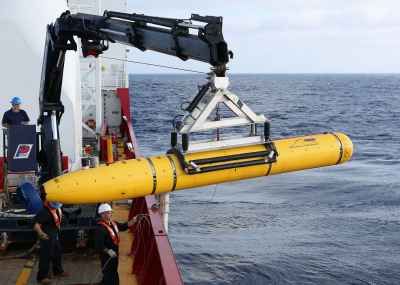 Malaysian Prime Minister Najib Razak has admitted that Malaysia ‘did not get everything right’ in the first few days of Flight MH370’s disappearance and called for implementing real-time tracking of airliners, as the search for the crashed jet was hampered by technical troubles on Wednesday.
Malaysian Prime Minister Najib Razak has admitted that Malaysia ‘did not get everything right’ in the first few days of Flight MH370’s disappearance and called for implementing real-time tracking of airliners, as the search for the crashed jet was hampered by technical troubles on Wednesday.
“In the passage of time, I believe Malaysia will be credited for doing its best under near-impossible circumstances. It is no small feat for a country the size of ours to overcome diplomatic and military sensitivities and bring 26 different countries together to conduct one of the world’s largest peacetime search operations,” Najib wrote in an article in the Wall Street Journal.
“But we did not get everything right. In the first few days after the plane disappeared, we were so focused on trying to find the aircraft that we did not prioritise our communications,” he wrote, candidly admitting Malaysia’s missteps in the first few days of the search for the flight.
He admitted that it took air-traffic controllers four hours to launch the search-and-rescue operation but stressed that the plane vanished at a moment between two countries’ air-traffic controls, which caused maximum confusion. “Despite this, the search began about a third quicker than during the disappearance of Air France Flight 447 in 2009. Nevertheless, the response time should and will be investigated,” he said.
Najib asserted that none of this could have altered the fate of Malaysia Airlines plane. The Beijing-bound plane, carrying 239 people, including five Indians, an Indo-Canadian and 154 Chinese nationals mysteriously vanished on March 8 after taking off from Kuala Lumpur.
Meanwhile, the search for the plane in the vicinity of the acoustic signals acquired by the towed pinger locator in the southern Indian Ocean in April resumed on Tuesday with the Australian vessel, Ocean Shield, arriving back in the area after a port visit.
The autonomous underwater vehicle, Bluefin-21, was deployed on Tuesday but was recovered about two hours later to investigate communications problems. ‘The work continues to rectify the issue and to date, Bluefin-21 has not been redeployed,’ the Joint Agency Coordination Centre, which is heading the search, said.
Najib in his article pledged that Malaysia will keep searching for the plane for as long as it takes. “We will also continue facilitating the independent investigation so we can learn from any mistakes. We have already tightened airport security, and investigators are looking for other measures to improve safety,” he said.
He added that the techniques used to search for the plane have also been unprecedented. “In the absence of contact via normal aircraft communications, the international investigation team, which includes the world’s best aviation experts, was forced to turn to satellite ‘handshakes’, mathematics and sophisticated techniques never before used to find a missing aircraft,” Najib noted. “The team managed to identify where flight MH370 ended, and it has narrowed down a search area off Western Australia. Yet, despite the efforts of the world’s brightest minds and best militaries, the search area remains huge. Finding the plane will be neither quick nor easy,” Najib opined.
He stressed that lessons needed to be learnt from the tragedy and highlighted that Malaysia’s preliminary report into MH370 includes a recommendation for the real-time tracking of commercial aircraft. “We should also consider changing communications systems, namely transponders and Aircraft Communications Addressing and Reporting Systems, so they can’t be disabled mid-air,” he suggested.
He added, “Policy makers need to reconsider the capabilities of airliners’ black boxes. At the moment, the location pingers, which are activated if a plane crashes, last only for 30 days. This should be increased to at least 90 days, as the European Union has proposed.”
Image: The underwater vehicle being deployed to hunt for the missing MH370.










 © 2025
© 2025